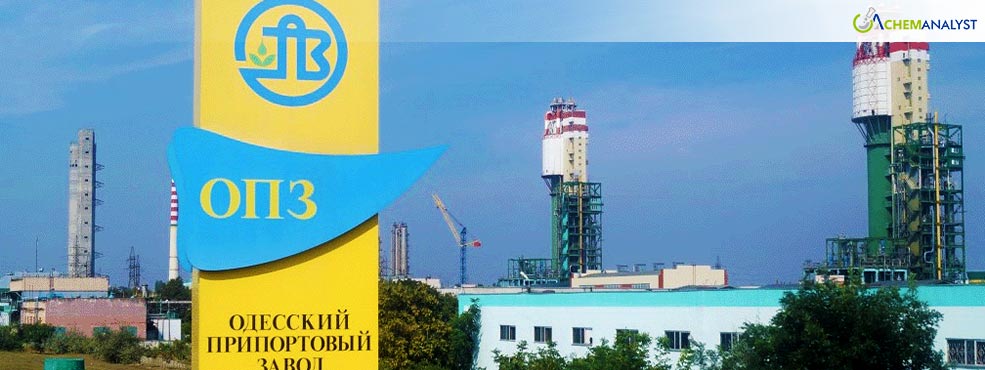Welcome To ChemAnalyst

The Ukrainian government has initiated auction of the state-owned Odesa Port Plant, a significant chemical industry enterprise in a bid to privatize the sector. This move comes amidst a backdrop of a high-profile corruption scandal involving the plant's former leadership.
The Privatization Process
According to People's Deputy Oleksiy Honcharenko, the Cabinet of Ministers has begun preparations for the sale of the 99.5667% state-owned stake in the plant. The final sale price will be determined through an auction, “with a minimum bid of UAH 4,673,785 million.”
The Odesa Port Plant, a strategic asset, has been repeatedly considered for privatization since 2009. However, these attempts were unsuccessful until now. In 2023, the plant was officially included in the government's large-scale privatization plans.
The Plant's Significance and Financial Situation
The Odesa Port Plant is a key player in Ukraine's chemical industry. It specializes in the production of ammonia, urea, liquid nitrogen, carbon dioxide, and liquid oxygen, as well as the transshipment of chemical products.
The Odesa Port Plant is a significant chemical industry enterprise in Ukraine, specializing in the production of ammonia, urea, and liquid carbon dioxide. The plant has two ammonia production units, each with an annual capacity of 550,000 tons, and two urea production units, each capable of producing 430,000 tons annually. Additionally, the plant operates extensive transshipment facilities for ammonia, urea, and methanol, with annual capacities of up to 4 million, 3.6 million, and 1 million tons, respectively.
The plant's storage facilities can accommodate up to 120,000 tons of ammonia, 80,000 tons of urea, and 36,000 tons of methanol. With an average of 2,500 employees, the plant operates on a leased land area of 64.9 hectares.
The plant's strategic location on the Black Sea coast makes it a vital export hub for Ukrainian chemical products.
Despite its strategic importance, the plant has been plagued by financial difficulties. As of March 31, 2024, its total accounts payable exceeded UAH 16.2 million, including substantial debts for goods, services, taxes, and employee wages. The plant has overdue accounts payable of $270 million and related penalties of $117 million.
Corruption Scandal and Legal Proceedings
The privatization of the Odesa Port Plant is overshadowed by a significant corruption scandal involving former State Property Fund head Dmytro Sennychenko. Law enforcement agencies in Austria and France have seized assets linked to suspects in the case, which involves allegations of embezzlement of funds from the plant.
In May 2024, the High Anti-Corruption Court issued an arrest warrant for Sennychenko in absentia. The National Anti-Corruption Bureau (NABU) has also suspended its investigation into the criminal organization led by Sennychenko due to challenges in locating suspects and international cooperation.
The NABU has outlined two key episodes of corruption linked to the Odesa Port Plant. The first episode involves the manipulation of the plant's supervisory board to appoint a member of the criminal organization as the plant's director.
The privatization of the Odesa Port Plant is expected to attract significant interest from both domestic and international investors. However, the ongoing corruption scandal and the plant's financial challenges may impact its market value and the overall success of the privatization process.
We use cookies to deliver the best possible experience on our website. To learn more, visit our Privacy Policy. By continuing to use this site or by closing this box, you consent to our use of cookies. More info.
